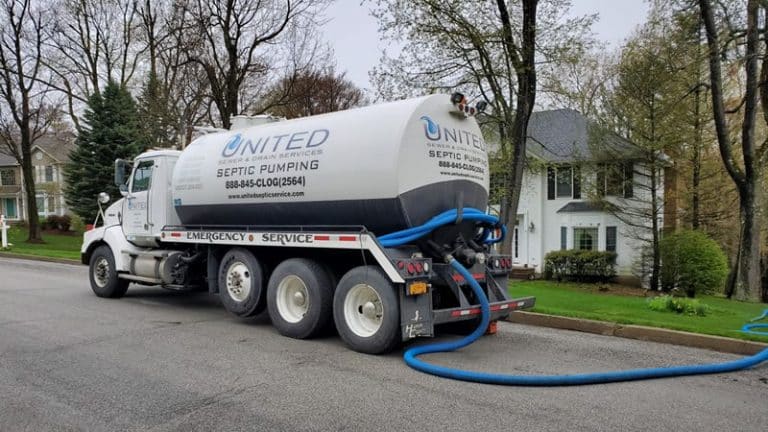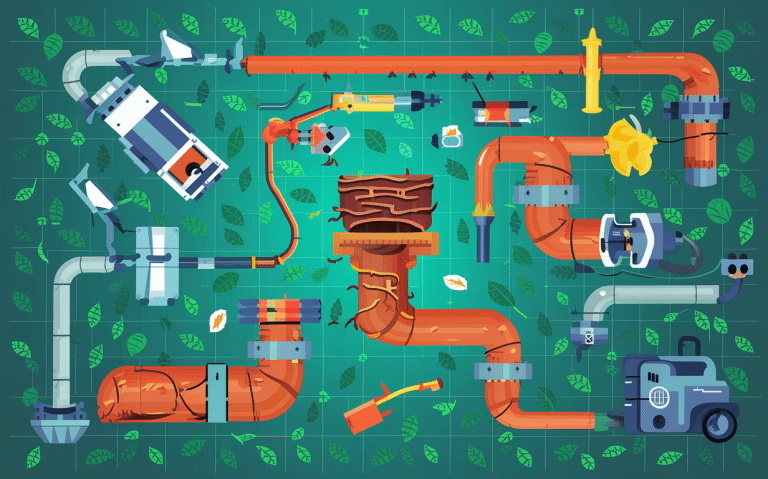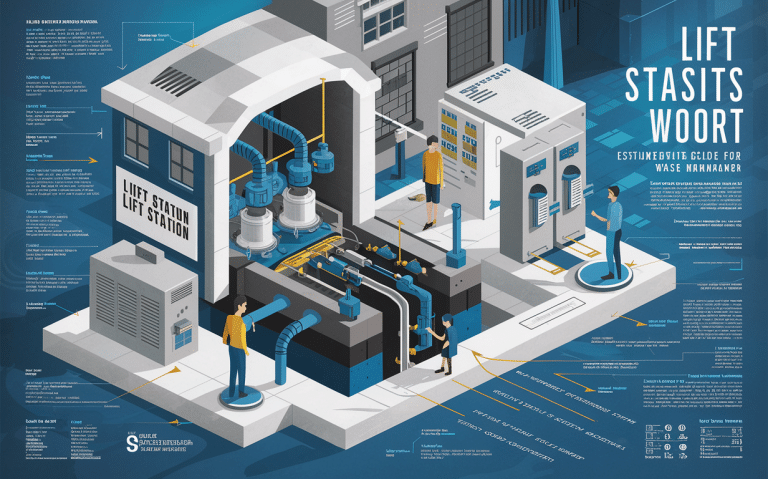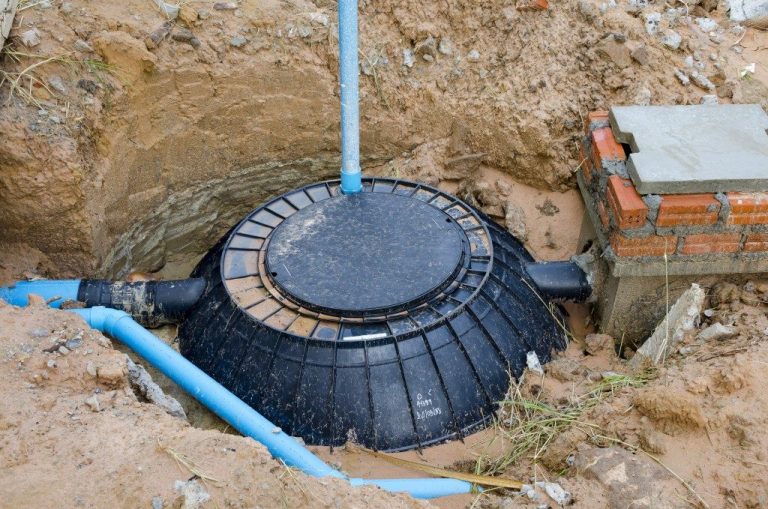Professional Septic Services: Keeping Your System Running Smoothly
Professional septic services are essential for maintaining the health and functionality of your septic system. Regular maintenance, inspections, and pumping can prevent costly repairs and ensure that your system operates efficiently.
In this article, we’ll explore the various aspects of septic services and how they contribute to the longevity of your septic system.
Key Takeaways
- Regular septic tank pumping is crucial to prevent sludge buildup and system failure.
- Inspections help identify potential issues before they become major problems.
- Proper maintenance extends the life of your septic system and saves you money in the long run.
- Working with experienced professionals ensures that your septic system receives the best care possible.
Understanding Your Septic System

A septic system is an underground wastewater treatment facility that processes and disposes of household waste. It consists of a septic tank, a distribution box, and a leach field.
The septic tank is where the wastewater from your home is collected and separated into layers: scum (solid waste), effluent (liquid waste), and sludge (heavy solids that settle at the bottom).
The effluent flows out of the septic tank into the distribution box, which evenly distributes the liquid into the leach field. The leach field is a series of perforated pipes laid in trenches filled with gravel, allowing the effluent to slowly seep into the soil, where it is naturally filtered and treated.
The Importance of Septic Tank Pumping
One of the most critical aspects of septic services is regular septic tank pumping. Over time, the sludge layer in your septic tank builds up and can cause clogs, backups, and even system failure if left unchecked.
Pumping your septic tank every 3-5 years, depending on the size of your household and the tank’s capacity, is essential to maintain a properly functioning system.
During the pumping process, a professional will use a vacuum truck to remove the sludge and scum from your septic tank, leaving it clean and ready to continue processing your household waste efficiently.
Septic System Inspections
Another crucial component of septic services is regular inspections. A professional septic service provider will thoroughly examine your entire system, including the septic tank, distribution box, and leach field, to identify any potential issues or areas that require attention.
Some common problems that can be detected during an inspection include:
- Cracks or damage to the septic tank
- Clogs in the distribution box or leach field pipes
- Tree root intrusion
- Excessive sludge buildup
- Malfunctioning septic tank components, such as baffles or filters
By catching these issues early, you can prevent more severe damage and costly repairs down the line.
Maintaining Your Septic System
In addition to regular pumping and inspections, there are several steps you can take to maintain the health of your septic system:
- Be mindful of what you flush: Avoid flushing non-biodegradable items, such as wipes, feminine hygiene products, and cotton swabs, as they can cause clogs and damage to your system.
- Conserve water: Overloading your septic system with too much water can lead to failure. Fix leaky faucets and toilets, and spread out laundry and dishwashing loads to reduce the strain on your system.
- Keep your leach field clear: Avoid parking vehicles, planting trees, or constructing structures on top of your leach field, as this can compact the soil and damage the pipes.
- Use septic-safe products: Choose cleaning products and detergents that are labeled as septic-safe to minimize the impact of harsh chemicals on the beneficial bacteria in your septic tank.
The Benefits of Professional Septic Services
While some aspects of septic system maintenance can be done by homeowners, it’s essential to work with experienced professionals for tasks like pumping and inspections. Here’s why:
- Expertise: Septic service professionals have the knowledge and training to identify potential issues and provide effective solutions.
- Equipment: Professionals have access to specialized equipment, such as vacuum trucks and inspection cameras, to thoroughly clean and examine your septic system.
- Safety: Working with a septic system can be hazardous due to the presence of harmful gases and bacteria. Professionals have the necessary safety gear and training to handle these risks.
- Peace of mind: Knowing that your septic system is in the hands of experienced professionals can give you peace of mind and help you avoid costly mistakes.
| Septic Service | Recommended Frequency |
|---|---|
| Septic Tank Pumping | Every 3-5 years |
| Septic System Inspection | Every 1-2 years |
| Leach Field Maintenance | As needed |
Septic Services for Different System Types
There are several types of septic systems, each with its own unique maintenance requirements. Some common septic system types include:
- Conventional septic systems
- Aerobic treatment systems
- Sand filter systems
- Mound systems
A professional septic service provider will have the expertise to work with any type of septic system and provide the appropriate maintenance and repairs.
Signs You Need Septic Services
While regular maintenance is essential, there are some signs that indicate you may need septic services sooner than scheduled:
- Slow drains or frequent clogs
- Foul odors near your septic tank or leach field
- Standing water or wet spots in your yard
- Gurgling sounds coming from your drains
- Sewage backup in your home
If you notice any of these signs, contact a septic service professional immediately to diagnose and address the issue before it becomes a more significant problem.
Choosing the Right Septic Service Provider

When selecting a septic service provider, consider the following factors:
- Experience and reputation
- Licensing and certification
- Range of services offered
- Pricing and transparency
- Customer reviews and testimonials
Frequently Asked Questions

- How often should I have my septic tank pumped?
- The general recommendation is to have your septic tank pumped every 3-5 years, depending on factors such as household size and septic tank capacity.
- Can I use additives to maintain my septic system?
- While some additives claim to improve septic system performance, most experts agree that they are unnecessary and can even be harmful. Stick to regular maintenance and pumping for the best results.
- How can I tell if my septic system is failing?
- Signs of a failing septic system include slow drains, foul odors, standing water in your yard, and sewage backup in your home. If you notice any of these signs, contact a septic service professional immediately.
Conclusion
Septic services are an essential aspect of maintaining the health and functionality of your septic system. By investing in regular pumping, inspections, and maintenance, you can extend the life of your system, avoid costly repairs, and ensure that your household waste is processed efficiently and safely.
Remember to work with experienced professionals and stay proactive in your septic system care to enjoy a trouble-free wastewater treatment solution for years to come.
We specialize in pumping out residential septic, commercial septic, lift stations, and holding tanks of all sizes We offer prompt and efficient service that is competitively priced.
If you’d like to receive a quote to pump out your septic tank or holding tank please give us a call (888) 845-2564 or fill out our contact form and we’ll get right back to you.







